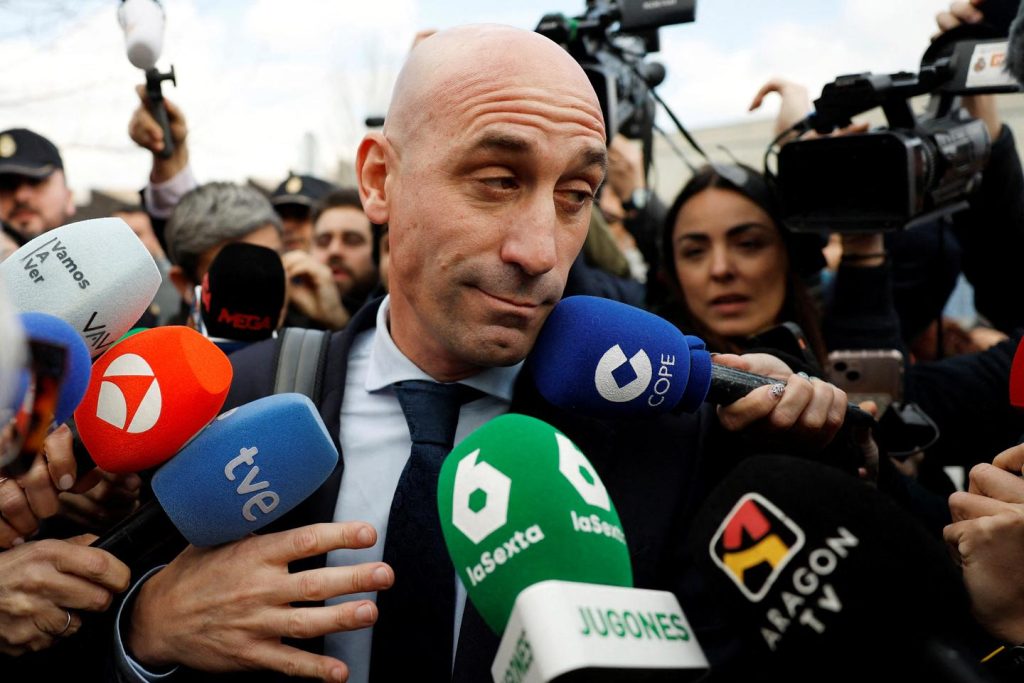The Fall of a Football Icon: Luis Rubiales’ Journey from Glory to Scandal
Luis Rubiales, once a respected figure in Spanish football, has seen his career diminish amidst a series of scandals that have rocked the nation. As the former president of the Spanish Football Federation (RFEF), Rubiales was instrumental in the country’s football successes, including the 2023 Women’s World Cup victory. However, his tenure was marred by a controversial incident involving Jenni Hermoso, a star player, leading to his resignation and a high-profile trial. This marked the beginning of a downward spiral, highlighting the consequences of abuse of power and misconduct in sports leadership.
The Trial Unveils Conflicting Narratives
The trial of Luis Rubiales has brought to light conflicting accounts of the infamous "forced kiss" incident. Rubiales, who initially responded with defensiveness, now acknowledges the inappropriateness of his actions but claims they were consensual. Jenni Hermoso vehemently disputes this, asserting the non-consensual nature of the gesture. The prosecution’s demand for a two-and-a-half-year sentence underscores the gravity of the charges. This case not only hinges on the testimonies of the involved parties but also reflects broader issues of power dynamics and consent in sports.
Public and Media Backlash: A Catalyst for Change
The scandal has sparked outrage and a national conversation on misogyny in sports. Media and public reactions have been intense, with many calling for accountability and systemic change within RFEF. This incident has become a symbol of the need to address gender inequality and misconduct in sports organizations. The backlash reflects a societal shift towards demanding greater accountability and transparency, urging sports bodies to foster a culture of respect and equality.
Unraveling Financial Misconduct: A Web of Deceit
Beyond the sexual misconduct charges, Rubiales faces allegations of financial impropriety during his RFEF presidency. The focus is on contracts awarded to Gruconsa, a company linked to his associates, raising suspicions of corruption and embezzlement. These allegations suggest a pattern of unethical practices, deepening the crisis for both Rubiales and RFEF. The investigations highlight the need for stricter oversight to prevent such abuses of power in sports governance.
Legal and Institutional Fallout: A Path to Reform
The legal proceedings against Rubiales are multifaceted, involving both criminal charges and internal investigations. The trial’s outcome could set a precedent for addressing misconduct in sports leadership. RFEF is under pressure to implement reforms to prevent future scandals, ensuring transparency and accountability. The implications extend beyond Rubiales, potentially leading to systemic changes in how sports organizations operate and leaders are held accountable.
Legacy and Lessons: A Cautionary Tale
The case of Luis Rubiales serves as a cautionary tale about the fallibility of power and the importance of accountability. His legacy, once defined by football successes, is now overshadowed by scandal. This incident underscores the need for ethical leadership and the consequences of failing to uphold those standards. Moving forward, the focus must be on creating a culture of integrity and respect within sports organizations, ensuring that such missteps are not repeated. The lessons from Rubiales’ downfall can pave the way for a more just and equitable future in football.












